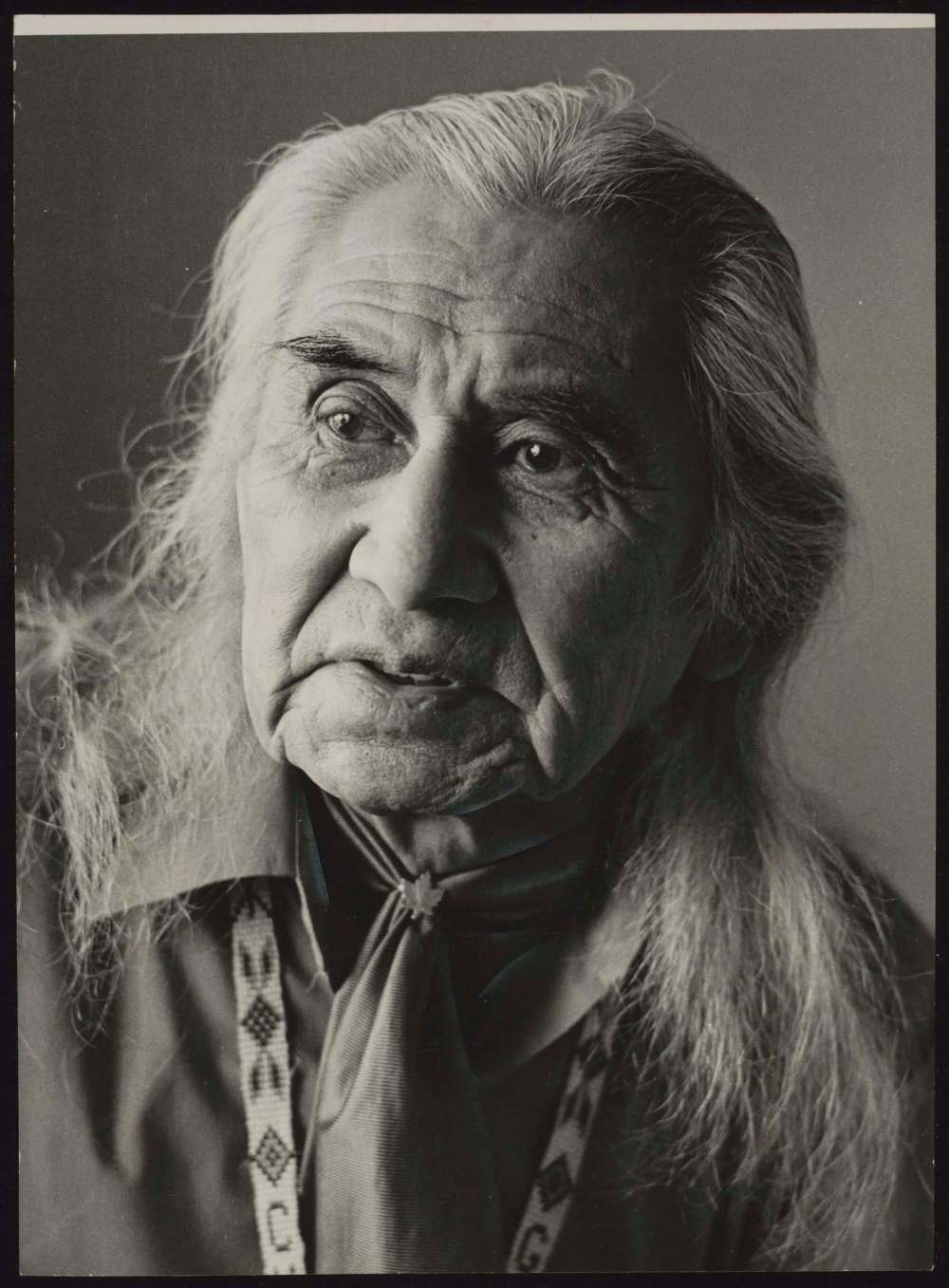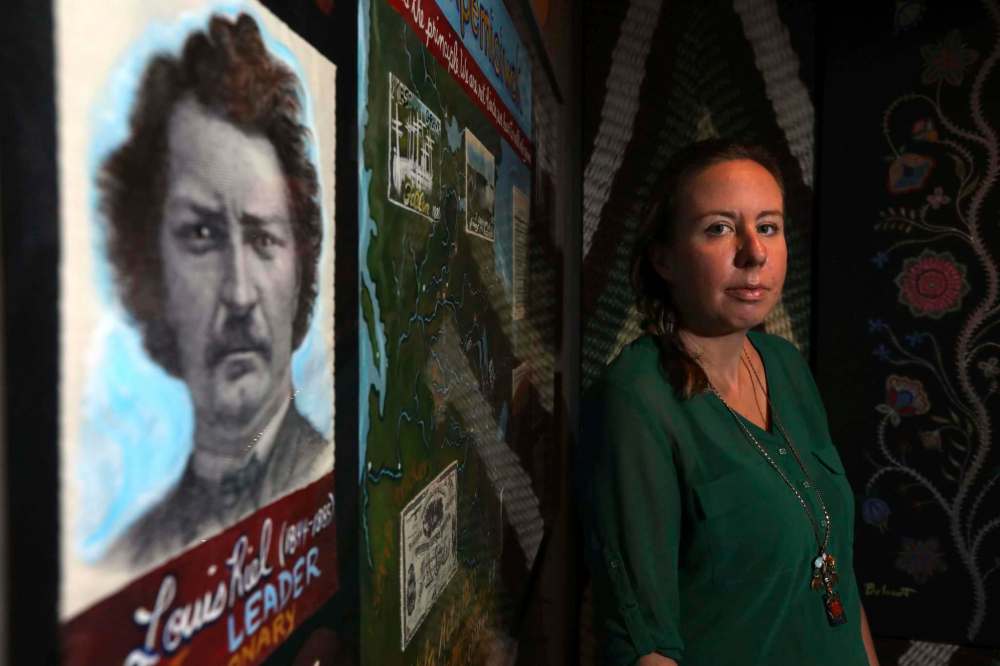Revelry for some, disgust for others
For the nation's indigenous population, little has changed since Chief Dan George delivered his Lament for Confederation 50 years ago
Advertisement
Read this article for free:
or
Already have an account? Log in here »
To continue reading, please subscribe:
Monthly Digital Subscription
$1 per week for 24 weeks*
- Enjoy unlimited reading on winnipegfreepress.com
- Read the E-Edition, our digital replica newspaper
- Access News Break, our award-winning app
- Play interactive puzzles
*Billed as $4.00 plus GST every four weeks. After 24 weeks, price increases to the regular rate of $19.00 plus GST every four weeks. Offer available to new and qualified returning subscribers only. Cancel any time.
Monthly Digital Subscription
$4.75/week*
- Enjoy unlimited reading on winnipegfreepress.com
- Read the E-Edition, our digital replica newspaper
- Access News Break, our award-winning app
- Play interactive puzzles
*Billed as $19 plus GST every four weeks. Cancel any time.
To continue reading, please subscribe:
Add Free Press access to your Brandon Sun subscription for only an additional
$1 for the first 4 weeks*
*Your next subscription payment will increase by $1.00 and you will be charged $16.99 plus GST for four weeks. After four weeks, your payment will increase to $23.99 plus GST every four weeks.
Read unlimited articles for free today:
or
Already have an account? Log in here »
Hey there, time traveller!
This article was published 30/06/2017 (3030 days ago), so information in it may no longer be current.
ON July 1, 1867, the Montreal Lacrosse Club took on a team from the Kahnawake Mohawk tribe.
It was a ceremonial celebration of the birth of a nation.
Except for one detail: the Mohawks weren’t considered Canadians.

“I doubt very much that the Mohawk people were celebrating Confederation Day in 1867,” says Karine Duhamel, curator of indigenous content at the Canadian Museum for Human Rights.
“What’s interesting is the way that Confederation is realized basically through ignoring the fact that indigenous people live in these spaces, and have been there for millennia, and are still there.”
(Of note, there was a 150th Anniversary Lacrosse Celebration in Montreal in mid-June, which included a re-enactment of “an 1867-style” game, with players — students from Kahnawake — dressed in authentic clothing.)
Duhamel says such scenes have been commonplace throughout Dominion Day and Canada Day festivities where, historically, there have been token acknowledgements of indigenous culture that were largely absent from reality.
Indigenous people — First Nations, Métis, Inuit — have been marginalized, Duhamel notes, “except when they bring out (indigenous) people to show how great it is that there’s this union. And the big elephant on the field is the fact that the Mohawks of Kahnawake have not joined Confederation. They’re not part of this official narrative.”
With Ottawa spending $500 million on events and anniversary projects, indigenous leaders have founded groups such as #Resistance150 to protest the “discriminatory and assimilationist policies of the Canadian government.”
The Twitter hashtag includes posts such as this one from Ontario’s Nipissing First Nation Chief Scott McLeod, who wrote: “I try not to be cynical but when asked about the upcoming Canada 150 celebrations my response is simple, ‘First Nation communities are too busy looking for their missing women and girls, and pulling their kids from rivers to blow up balloons or giant rubber ducks.’”
“This all speaks to the idea that there’s not one history of this day,” Duhamel says. “There are many histories… and they’re not all the cause for celebration.”
This shouldn’t be a revelation.
A half-century ago, during Canada’s Centennial celebration, Chief Dan George stepped before a crowd of 32,000 at Vancouver’s Empire Stadium and gave a speech that still reverberates today, entitled “Lament for Confederation.”
“Oh Canada, how can I celebrate with you this Centenary, this hundred years?” George said.
“Shall I thank you for the reserves that are left to me of my beautiful forests? For the canned fish of my rivers? For the loss of my pride and authority, even among my own people? For the lack of my will to fight back? No! I must forget what’s past and gone.”
Those words have no less meaning today, Duhamel says.

“It was a scathing indictment of what this day means to indigenous people,” she says. “Because it’s not about celebration, it’s not about the making of a country. It’s about dispossession.
“Yes, there were certainly many people in Canada who had picnics and held parties and really had a lot to celebrate. But there were many people who didn’t.”
Manitoba’s history with Confederation is no less conflicted in terms of indigenous rights. Louis Riel’s 1869-70 Red River Rebellion defined the terms of the province’s birth in 1870, which included two official languages.
But as thousands of settlers flooded into the valley in the wake of Manitoba joining Confederation, the land rights promised to Métis were never received.
So… Happy Birthday?
“Indigenous people have mixed opinions, in many cases, about Canada 150,” Duhamel says.
“On the one hand, activists and advocates have accomplished a lot… but people can’t swallow the celebrations in an uncritical way, because there’s so much work left to be done.
“Reconciliation in the context of Canada 150, for non-indigenous Canadians, has to include an acknowledgement of the brutal aspects of Canadian history and actions for redress,” Duhamel says.
“For indigenous people celebrating, Canada 150 will be about pride, resilience and the next 150 years.”
randy.turner@freepress.mb.ca Twitter: @randyturner15

Randy Turner
Reporter
Randy Turner spent much of his journalistic career on the road. A lot of roads. Dirt roads, snow-packed roads, U.S. interstates and foreign highways. In other words, he got a lot of kilometres on the odometer, if you know what we mean.
Our newsroom depends on a growing audience of readers to power our journalism. If you are not a paid reader, please consider becoming a subscriber.
Our newsroom depends on its audience of readers to power our journalism. Thank you for your support.

